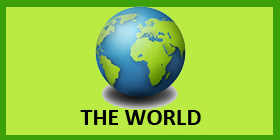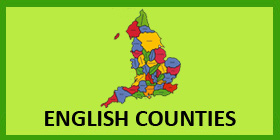




Back to the Mesolithic Age calendar



This is the time when the experts say the ice age officially finished. We have called this period the Mesolithic Age and I will
explain why. It's because the expert archaeologists, more of them later, call it that. They use the Greek language to do it and meso, in Greek, means middle and
lithic means stone. So this is the Middle Stone Age. Humans, in their earliest form, had been using stone tools for a long time. Before this period there was the
Palaeolithic Age. Palaeo, once again in Greek, means old. This period had gone on for an incredibly long time. It began over 2˝ million years ago and, as even
Richard wasn't around then, we've ignored it.
Meanwhile the next period we look at, which we've called just The Stone Age, those archaeologists call the Neolithic Age, and it doesn't take much
guessing to see that neo in Greek means new. There isn't really a set time when these changes happened but most agree it was around the dates we have used. We
didn't want to be too different.
Another thing that changes, but not at any set time, is the weather that our planet, earth, experiences. This especially happens over a long period of
time. We actually have no control over some of it and because the changes are so slow, so gradual, we sometimes tend not to even notice them.
You have probably heard people talk of climate change. I am not going to discuss it much here but you will find more in our history of 2019.
All I will say is that you might like to look it up somewhere else. There are lots of different opinions and you can also find out actual facts, far more important
than opinions. There is no doubt that, although we may only have some control over the climate, the more of us there are, the more we will affect things.
Back in this time there were only about 3,000 people living in England. If they decided to chop down part of a forest, firstly it took a very long time
with a flint axe and secondly there weren't many of them to do it. People had hardly any effect on the climate. Now it is so very different and we have reached a
point where, if something, no many things, are not done soon we might not have a planet to live on. And by soon, I mean next year, the following year and every
year thereafter.
 As I said we will write far more when we look at the history of 2019
and the influence that just one person, Greta Thunberg, has had. She's only 16 but she is determined to make a difference so that she, and you little owlettes, can
have a world that you can actually live in and she is not shy about telling world leaders what they must do. We are also writing a project for you to do which looks
at the influence climate change has had, is having and will have unless we make changes to the way we live.
As I said we will write far more when we look at the history of 2019
and the influence that just one person, Greta Thunberg, has had. She's only 16 but she is determined to make a difference so that she, and you little owlettes, can
have a world that you can actually live in and she is not shy about telling world leaders what they must do. We are also writing a project for you to do which looks
at the influence climate change has had, is having and will have unless we make changes to the way we live.
Back to our history though and people had already begun to arrive and live in what is now England. As we said in our introduction, they were called
hunter gatherers because that is how they existed. As the cold weather headed back north, these people would have followed the animals, their food, as the animals
began to explore new lands. If the hunter gatherers stayed in one place too long, they could run out of food. The animals would have been killed off or, more
sensibly, run away and berries and nuts would be gone, at least until another batch had grown. Wouldn’t it be strange if your supermarket never got any deliveries
and, when it ran out of items, you had to move to another town which still had supplies?
When the people first arrived back they would have found fast flowing rivers, created by the glaciers and melting ice and lots of green grassland.
Soon it would change.
Forward to 7800BC

